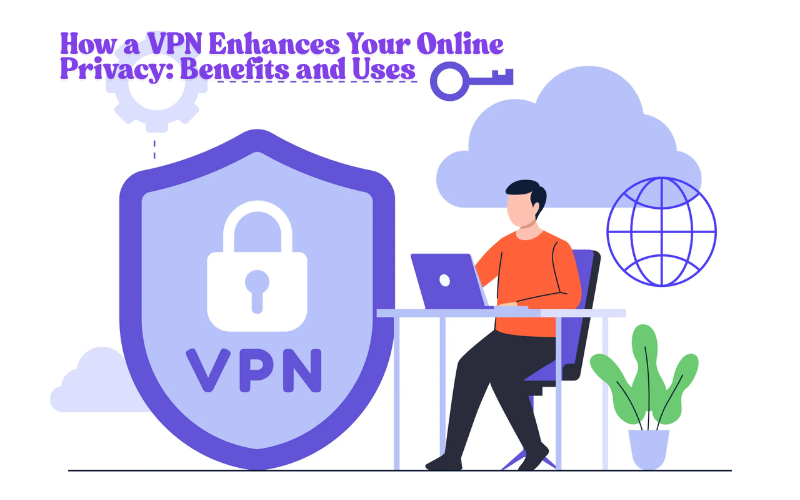In the modern digital world, online privacy has become one of the biggest concerns for internet users. With personal information, sensitive data, and online activities easily accessible to hackers or tracked by organizations and service providers, protecting your privacy online is more important than ever. One of the most effective tools in safeguarding your online privacy is a Virtual Private Network (VPN). This article explores how VPNs help protect online privacy, the benefits they offer, and how to use them in your daily life.
What is a VPN?
A VPN is a service that creates a secure connection between your device and the internet. When you connect to a VPN, your data is encrypted, making it unreadable to anyone intercepting your connection. This prevents hackers or other entities from accessing your sensitive information or tracking your online activities.
Benefits of VPN for Privacy
-
Anonymity and Personal Data Protection One of the most important benefits of a VPN is its ability to maintain anonymity. By using a VPN, your real IP address is replaced with the VPN server’s IP address, making it harder for websites to track your location or activities.
-
Protection from Cyberattacks VPNs also provide protection from cyberattacks, especially when using public Wi-Fi networks. Public Wi-Fi, found in places like cafes, airports, and hotels, is often insecure and can be a target for hackers. VPNs encrypt your data, protecting it even if you’re on an unsecured network.
-
Avoiding Online Surveillance Some governments and organizations track their citizens’ or employees’ online activities. By using a VPN, you can bypass surveillance, ensuring that your internet use remains private.
How to Use a VPN for Privacy Protection
-
Use VPN While Browsing When browsing the web, using a VPN ensures that your online activities are private and secure. This is especially important when accessing websites that require personal information, such as banking sites or online shopping platforms.
-
Using VPN on Public Wi-Fi VPNs are crucial when connecting to public Wi-Fi networks. These networks are often unsafe, and VPNs add an extra layer of protection by encrypting your data, safeguarding it from potential attacks.
-
Accessing Online Services Securely VPNs can also help you access various online services securely without the fear of tracking. VPNs are essential for bypassing geo-restrictions on content platforms like Netflix, Hulu, or BBC iPlayer.
Reputable VPN Services
There are many VPN providers available today, and it’s essential to choose one with robust features. Providers such as NordVPN, ExpressVPN, and CyberGhost offer strong encryption, reliable privacy policies, and many server locations, ensuring your online activities are secure.
Conclusion
A VPN is an excellent tool for enhancing your online privacy, allowing you to browse the internet safely, access public Wi-Fi securely, and avoid surveillance. By adopting a VPN, you can protect your personal data and keep your online activities private.

